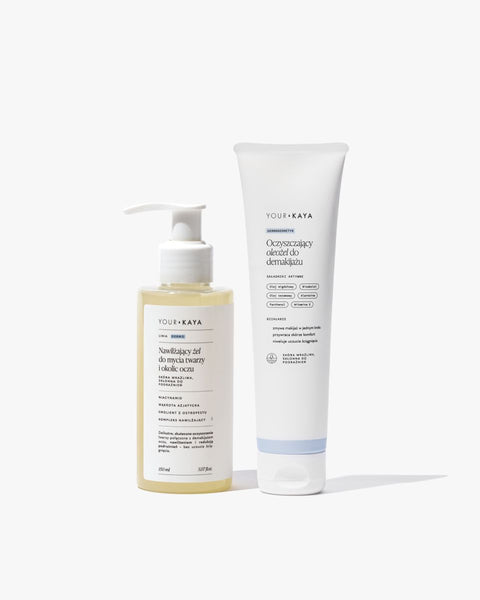Research results clearly indicate this – only 23% of women talk openly at school or work about having their period .
In turn, 99% of women struggle with various ailments during their period that prevent them from functioning freely and performing daily duties.
This means that a large proportion of these women, for various reasons (which will be discussed shortly), have to camouflage their worsening mood or physical discomfort during menstrual bleeding .
Where did this data come from?
The period in numbers
In April 2023, on behalf of Your KAYA, the research house Kantar conducted a study on a group of 501 women.
The respondents were asked a series of questions about menstruation – not only about personal experiences (including symptoms accompanying bleeding), but also about its “reception” in the immediate environment. It will come as no surprise to anyone that the menstrual taboo is still rampant in society and, unfortunately, is doing well.
We oppose this and loudly say #OkresWypada! Go to our campaign website ( LINK ), watch the spot and share it – together we can do more!
Yes, we may be seeing blue menstrual fluid less and less often in pad ads, where smiling women present a rather rare face of a symptom-free period, but the problem is rooted much deeper , and problem-free menstruation is rather an elusive oxymoron .
Taboo also has another, more " everyday" face.
"A period is not an illness"
Such comments were made, among others, by respondents when asked about examples of discriminatory attitudes towards them during menstruation.
The most common ones were:
- indiscriminate comments and expressive glances,
- gaslighting – depreciating symptoms and suggesting that the period affects the quality of work or decisions made,
- exclusion from common activities.
"You shouldn't talk about things like that - especially in front of boys"
23% of respondents who encountered unpleasant reactions from their surroundings to menstruation cited disgust as one of them.
It's no wonder that many people decide to hide the fact that they have their period (by smuggling pads into the toilet in the sleeve of a sweatshirt or jacket – do you know that?) and mask the pain by swallowing more painkillers.
This doesn't always work - but few people have the opportunity to slow down and put their daily duties aside for a while to regenerate.
Periodic “ time off”?
Menstrual leave in Poland is not legally constituted in any way – it depends on the internal arrangements of a given workplace.
77% of respondents admitted that they were unable to take time off from school/work due to menstruation.
Schools also don't provide a special day off for menstrual bleeding to regenerate. Yes, on the day of the heaviest bleeding (or when period symptoms are at their most severe) you can usually take time off from PE classes camouflaged as "indisposition" - but for many young people this is a very uncomfortable situation, in which they are put on display, and their menstrual "weakness" is even more clearly exposed.
While sharing my experiences with a teammate, I learned that at her local school, “indisposition” = unpreparedness for classes, and several such reports in a row result in a grade of F in the class register.
What about access to hygiene products?
63% of our respondents admitted that they had experienced a stain on their clothes while in a public place.
If this has happened to you, you know what emotions it involves . The stress , embarrassment, or panic would certainly be more bearable with the knowledge that there are pads and tampons waiting at the ready in the office or school bathroom.
Limited access to essential menstrual hygiene products primarily affects people from the least developed countries, but the problem is closer than you think .
Let's remember that it's not just about camouflaging bleeding and avoiding a stain on your pants - lack of proper intimate hygiene is associated with the risk of many diseases and infections, which, if left untreated, can lead to serious health repercussions.
93% of our respondents believe that schools and workplaces should be provided with free, accessible menstrual hygiene products.
This seems like a first, fundamental step towards normalizing menstruation, as well as a huge support for those who, for various reasons, cannot afford to buy menstrual hygiene products on their own.
"You're fine, you're not dying"
Of course not.
Menstruation is the opposite of information from the body, proving that it is functioning properly.
Any form of discrimination often comes from misunderstanding. That is why it is so important to educate and call things by their names .
Fighting menstrual taboos is in our blood – the direct pretext for creating Your KAYA was the discovery that pad manufacturers are not required to list their ingredients on the packaging.
We do not stop and we continue working.
Period is due . Simply!
Created at: 22/05/2023
Updated at: 25/05/2023






































































































































